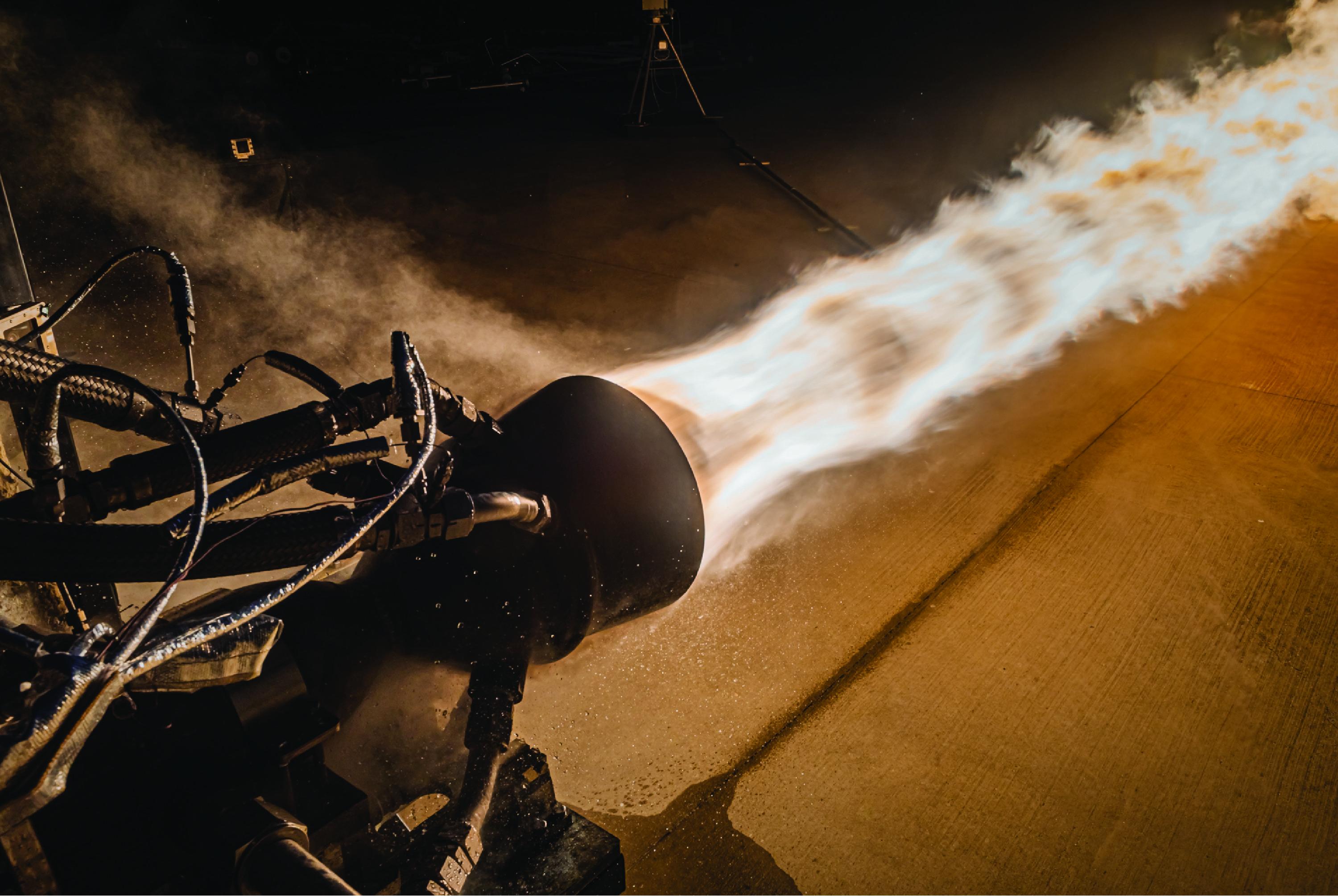
Vast plans to continue Launcher’s E-2 rocket motor development.
Vast Space, a startup attempting to develop a space station with artificial gravity, has acquired Launcher, a startup that was developing a small launch vehicle and space tug.
As part of the acquisition, Launcher will abandon its efforts to develop “Light,” a three-stage small launch vehicle that would have had a 330-lb. payload capacity to low Earth orbit, it said on Feb. 21. Vast plans to continue development of Launcher’s E-2 closed-cycle, staged-combustion engine, which was to solely power the first stage of the Light launch vehicle. Launcher’s Orbiter, a space tug and payload host, will also continue development within Vast.
The amount Vast paid to acquire Launcher was not disclosed. Vast plans for all of Launcher’s employees to move to its Long Beach, California, headquarters, bringing its total head count to 120 staff. Launcher was located nearby in Hawthorne.
Founded in 2021, Vast is working to develop a 100-m-long space station that would spin to provide artificial Earth gravity and partial gravity. The space station would be capable of housing more than 40 people and could also be used for voyages to the Moon, Mars and asteroids.
Vast plans to test some space station components and subsystems on orbit this year, it says. The company says Launcher’s employees will help it accelerate in-house manufacturing and technology development.
Launcher’s first Orbiter (SN1) space tug mission failed in January after reaching orbit aboard a SpaceX Falcon 9, the company said on Feb. 16. The vehicle stopped operating when it could not generate enough electricity from its solar panels, a problem caused by orientation control issues stemming from a fault in the spacecraft’s GPS antenna system, the company said. The SN1 was unable to deploy its satellite payloads.
Launcher says it plans to attempt deploying additional Orbiter space tugs in June and October aboard SpaceX Transporter-8 and Transporter-9 missions.
